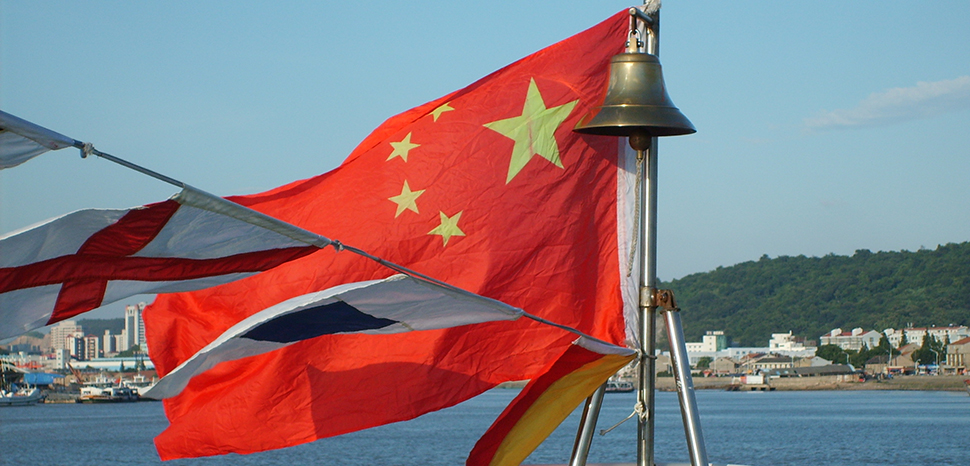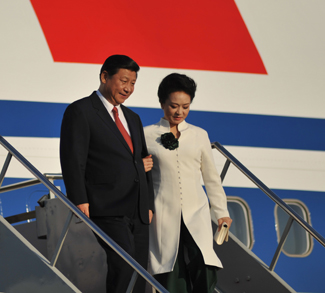The Senkaku Island dispute with Japan, Macclesfield Bank, Paracel Islands, the Spratly Islands dispute with Vietnam, variance over the Line of Actual Control (LAC) with India, disputes with North Korea over Baekdu Mountain and Jiandao, differences with the Philippines over the South China Sea, a 160,000 square kilometer land dispute with Russia, differences with Singapore over parts of South China Sea, and the list of Chinese dispute goes on and on…
China shares borders (land and water) with more than 13 nations and has a conflict with nearly all of them. As it gains a prominent position in the world order, neighboring nations face the brunt of its growth. Its foreign policy has always been expansionist and recently passed three contentious laws concerning its land border as well as marine boundary, indicating a more aggressive approach to its future expansion. These laws passed are: the Land Boundary Law, Maritime Law, China Coast Guard Law.
On October 23, 2021, the Standing Committee of the National People’s Congress, the apex legislative body of China, passed the Land Boundary Law to protect the country’s land border areas. The law authorizes the use of weapons against ‘illegal crossers.’ China said that the step was taken in response to the Taliban’s takeover of Afghanistan, which shares a narrow border with China. The law further specifies that Beijing shall take steps to strengthen border defense and ensure economic and social development in the border areas, along with improving public services and infrastructure. It focuses on encouraging and supporting people’s working lives. The promotion of coordination between border defense and social, economic development in border areas is another part of the law’s focus; and it could well be applied with regard to China’s other land disputes with countries such as India, Nepal, Bhutan, Laos, Mongolia, and Tibet.
The newly passed Maritime Law by the Maritime Safety Administration (MSA) of China is designed to control the entry of foreign vessels in ‘Chinese territorial waters.’ Before entering these areas, foreign vessels, commercial as well as military, must obtain permission from the Chinese administration, otherwise they face a penalty. “This law is developed for the purposes of strengthening maritime traffic management, maintaining the maritime traffic order, ensuring the safety of life and property, and safeguarding the rights and interests of the state”, stated the official statement. China currently has maritime disputes with Taiwan, the Philippines, Indonesia, Vietnam, Malaysia, Japan, South Korea, North Korea, Singapore, and Brunei.
In January 2021, the country passed the China Coast Guard (CCG) law which grants its maritime law enforcement fleets permission to use lethal force against foreign ships sailing in waters that the government lays claim to. Neighboring countries have alleged that the law is an attempt to exert dominance by military means, and that it is meant to challenge the territorial status quo in the region. Moreover, the implementation of such a law is a blatant violation of the United Nations Convention on the Law of Sea (UNCLOS). As The Diplomat writes: “Article 21 of the CCG Law stipulates that if a foreign warship or government vessel violates China’s domestic law in waters where China claims jurisdiction, the CCG will take enforcing measures, up to and including forced eviction and towing.” The CCG is permitted by article 22 to use weapons against foreign organizations and individuals that contravene China’s sovereign rights and jurisdiction at sea. It further adds that articles 32, 95, and 96 of UNCLOS maintain that warships and government ships are absolutely immune from the jurisdiction of any country other than the flag state. Thus, these laws point to growing Chinese assertiveness which directly challenges international law and the global rules-based order.
India’s incumbent Minister of External Affairs, S. Jaishankar, in his book entitled The India Way: Strategies for an Uncertain World, highlights the fact that India’s approach toward China is changing against the backdrop of China’s rise. He writes: “India is not the only country focused on coming to terms with a significantly more powerful China. In fact, the entire world is doing so, and each nation is refashioning its terms of engagement in its own way.” He further adds that if there is a common approach, it is of them simultaneously strengthening capacities internally, evaluating the external landscape, and seeking understandings with China.
Geopolitical experts have long referred to these new set of regulations as the classic activity of ‘lawfare.’ Major General Charles Dunlap Jr. of the US Airforce (retired) explains the word lawfare as “a method of warfare where the law is used as a means of realizing a military objective.” Although China has provided a clarification that new laws will not affect existing treaties, it is evident that the economic giant is now shifting to aggressive policies which will spike tensions in the Indo-Pacific region. Amidst this, an uncomfortable question looms: Are these laws ticking time bombs?
The views expressed in this article are those of the authors alone and do not necessarily reflect those of Geopoliticalmonitor.com




